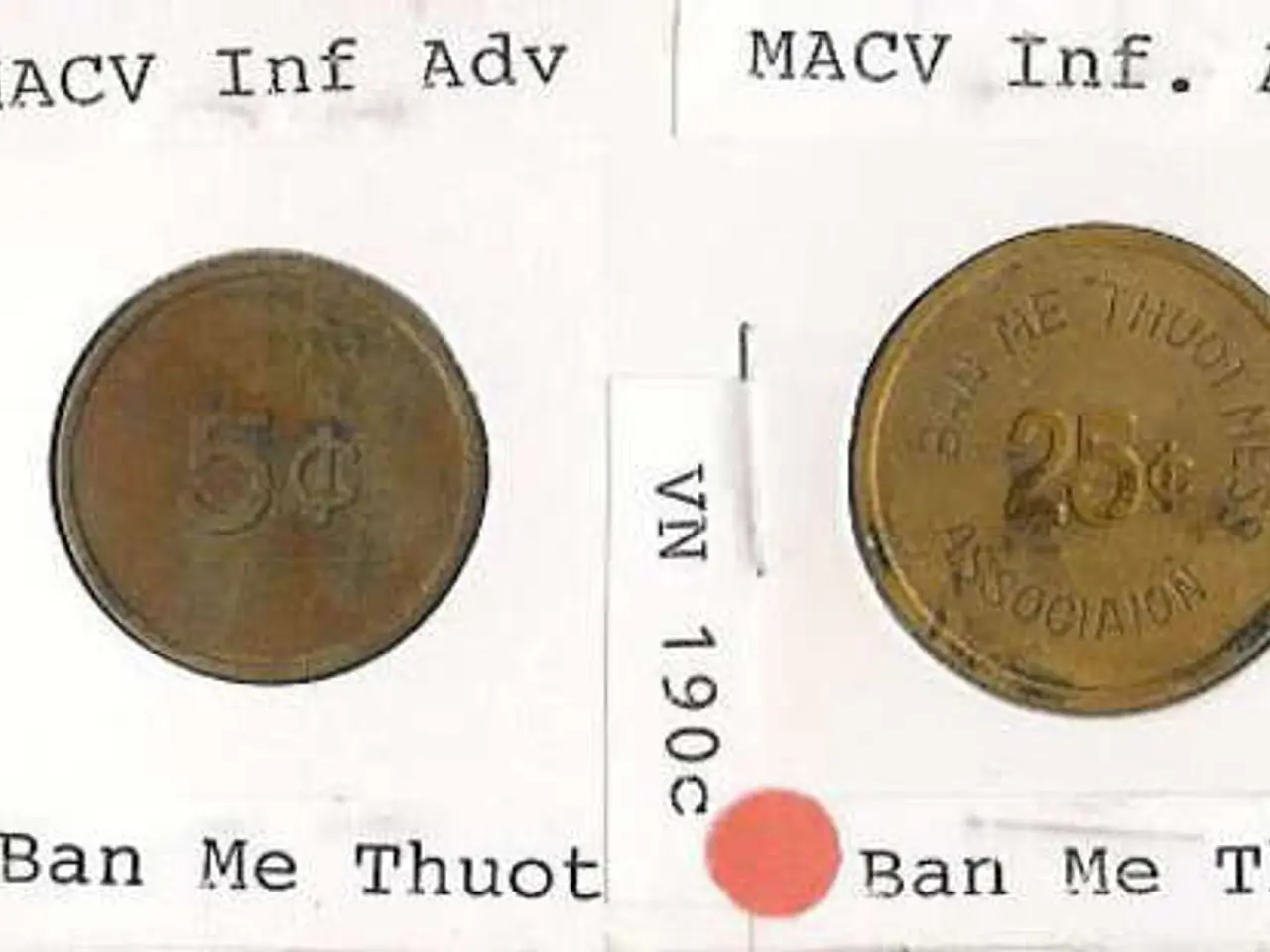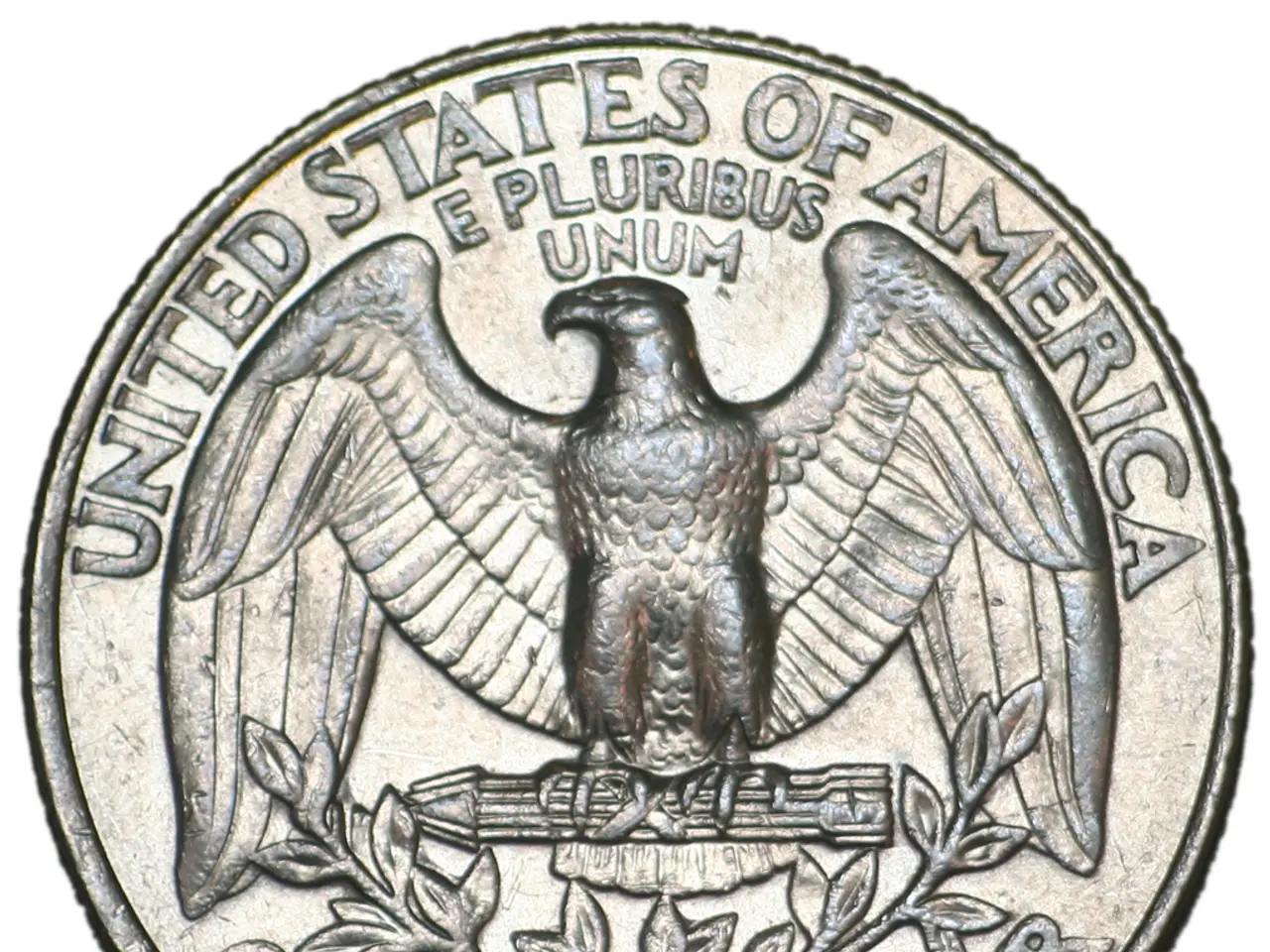Trump's Third Quarter: A Dive into the Financial Fray
Impact of Trump on Wall Street Corporations: Quantifying the Potential Harm
Let's take a no-holds-barred look at the stock markets and Trump's impact on their swings. Ntv.de gets the scoop from three financial gurus to unravel the secrets!
ntv.de: War in the Middle East has oil prices soaring high. How dire is this situation for the global economy and the stock markets?
Michael Wittek: I don't expect a catastrophe at this point. The oil price had dropped for months prior to this increase.
Reinhard Pfingsten: Agreed. High inflation might come into play if the conflict escalates, but hang on, as central banks should be able to handle it as long as there's no further chaos.
Nietho Bruhn: Oil price surges above $80 have, historically, slowed economic and stock market growth. At $75 per barrel, the effects should be minimal for now.
ntv.de: The markets are betting on peace in the trade war. Is that topic truly off the table?
Pfingsten: No, stocks have minimally priced in the worst-case scenario of a trade war, but not completely.
Bruhn: A compromise is likely, enabling both sides to save face.
Wittek: This issue will persist for at least the next three years and a half.
ntv.de: On the topic of trade agreements, how would you rate the ones signed between the US and the UK, and China?
Bruhn: They barely cover the affected goods flow, but they're a step in the direction of a "deal". Trump might be prioritizing the "deal" over the specifics.
Wittek: The UK agreement appears more symbolic, as the UK is only the ninth largest US trading partner.
Pfingsten: Not much has emerged from the US's initial promises for a major trade overhaul, as the known data are still rudimentary to make a fair assessment.
ntv.de: Can Trump really narrow the substantial US trade deficit?
Pfingsten: Potentially, Germany could boost imports of military products, technology, and agricultural or energy raw materials from the US. But, achieving the desired effect in other countries would require rapid expansion of production in the US—something that seems unlikely.
Bruhn: US digital services providers play a crucial role in maintaining the trade balance. They are not included in the trade deficit calculations, making it less pronounced, depending on interpretation.
ntv.de: What happens if the base tariff of 10 to 20 percent on imports persists? Can importers shoulder the burden, or will consumers bear it?
Wittek: Manufacturers will pass on the costs to consumers.
Pfingsten: You got it. American consumers will take on a significant portion of the new tariffs.
Bruhn: In the long run, this could encourage production shifts within the US, particularly in the automotive industry, in an attempt to dodge tariffs.
What does this mean for inflation in the US? Inflation already rose from 2.3 to 2.4 percent in May.
Pfingsten: We anticipate stronger inflation impacts from tariffs in the second half of the year. The increased inventory levels seen in the first half and subsequent reductions will create ongoing distortions. Expect a debate and uncertainty on the capital market about stagflation.
Wittek: Inflation won't spike dramatically. However, it will settle above the targeted 2 percent by the Fed.
Another thorn in Trump's side is the enormous public debt. How can the US achieve balance by maintaining low taxes?
Bruhn: It's unlikely. Ultimately, significant reductions in social benefits would weaken the economy.
Wittek: The US brought in Elon Musk to trim the budget, hoping he'd wield the ax. However, as it turned out, Musk's actual savings amount to merely $170 billion, spread over several years.
ntv.de: The US has to pay more than 4 percent for someone to buy their ten-year government bonds. Yet, Wall Street is near its all-time high. How does that fit together?
Wittek: The market anticipates growth albeit slowly, with the trade issue easing.
Pfingsten: U.S. tech stocks have performed exceptionally well in recent times, boosting the trend. However, we favor the European stock market's risk-reward profile more.
ntv.de: Are bonds a better option than stocks for investors?
Bruhn: U.S. stocks are still expected to perform better, especially for the coming years. Nonetheless, investors should diversify and consider both asset classes.
Wittek: From a European perspective, the two asset classes should not be mixed due to the strong influence of the U.S. dollar.
European and German stocks have outperformed U.S. stocks this year. Is this a short-term or sustainable development?
Pfingsten: Economically, the U.S. stock market offers much, but Trump's trade policy has eroded political trust in the U.S. as a location.
Bruhn: We view this as a short-term trend. In the long run, U.S. stocks tend to perform better.
Wittek: I disagree. European investors appear to be withdrawing funds from the U.S. and investing in their home market, a trend that should persist.
ntv.de: What drives further price increases in the stock markets?
Wittek: If the trade dispute and geopolitical tensions resolve and the stock market cools down a bit, there might be further opportunities for growth.
Bruhn: In essence, the US markets, until the end of 2024, have been propelled by the tech giants, while other companies have underperformed. Therefore, more growth can be expected if the laggards can catch up.
Pfingsten: The market will keep climbing as long as the economy expands. Of course, it won't avoid temporary lulls. It's never too late for long-term investors to enter the market!
ntv.de: Gold's surge shows no signs of slowing down. Isn't it an overhype?
Bruhn: Although gold may lose momentum compared to previous years, we still anticipate slight increases.
Pfingsten: We are more optimistic. The gold rally could continue due to central banks in specific regions choosing to divest from US dollars. As China alone possesses foreign exchange reserves of over $3 trillion, there's substantial gold demand potential.
Wittek: Gold price movements mirror global inflationary debt. While gold may need a breather or correction, it remains core for a diversified portfolio.
ntv.de: Despite Trump's Wall Street roots, the bond markets are in a sour mood. Who's right, Trump or the bond markets?
Pfingsten: Bond markets are operating normally after leaving the zero-interest phase, and the response to increasing public debt is good news.
Bruhn: Over time, Trump will likely focus more on Wall Street as his term progresses and the "Mid-Term Elections" approach.
ntv.de: How should investors position themselves in this environment?
Bruhn: The market's uncertainty will persist through July 8, 2025, when the EU's interest rate pause ends. Nevertheless, we remain cautiously optimistic for the remainder of the year and anticipate stabilization. Invest most of your liquid assets, depending on risk appetite, globally.
Wittek: Dividend stocks, with a focus on Europe, are preferred on the equity side. In the bond sector, we favor creditworthy issuers with medium maturities. Gold remains a core investment.
- Despite the ongoing trade war and escalating oil prices, the financial experts agree that the employment policy in EC countries might remain stable, as the global economy and stock markets are expected to withstand the current challenges.
- Investing in business and politics involves intricate decisions, especially when it comes to understanding the impact of trade policies, such as those implemented by the US administration, on employment policies and general-news trends.
- Stakeholders, including universities and private companies, could invest in educating the workforce to meet the evolving needs of the labor market in the context of changing trade agreements and global economic shifts.







